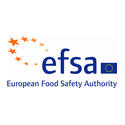In short
Foodborne infections remain a global problem with a significant impact on public health. Many of these infections occur at people’s homes or during group gatherings, often due to poor hygiene or lack of adequate preservation conditions. In these cases the pathogen (i.e. the agent responsible for diseases such as bacteria, virusses, etc.) and the food product responsible for the symptoms are easily identifiable, since a clear link exists with the consumed food product. However, in other cases the pathogen is known, while the contaminated food product is not. In order to detect, investigate and monitor these so-called ‘foodborne’ outbreaks (FBO) the national reference laboratories should possess a molecular database.
Project description
During the last decades the techniques for ‘microbial fingerprinting’, also known as molecular typing, have known a rapid evolution. Some of these techniques have emerged as ‘gold standard’ typing methods on an international scale. These are employed in the surveillance of the most common foodborne pathogens, such as Salmonella, Listeria and Shiga toxin-producing E. coli, across the globe. All molecular data generated by these surveillance systems are nationally stored in a molecular database.
In this project we develop and maintain such a database for the most common foodborne pathogens. Therefore, the molecular data from bacterial strains derived from the official control programs of the Belgian Federal Agency for the Safety of the Food Chain (FASFC) are analysed and maintained in one database. Based on this data trends in certain subtypes can be monitored and if necessary, preventive measures can be taken in order to safeguard the public health.
In the frame of specific foodborne outbreak investigations, the molecular profile of strains in question can be compared against existing strains in the database or against newly typed strains isolated in the course of the investigation. Some foodborne outbreaks may cross national borders. In these cases an efficient exchange of molecular typing data between countries is key. For this purpose, the European Food Safety Authority (EFSA) and the European Centre for Disease prevention and Control (ECDC) have created a European joined database, which allows European member states to upload national typing data to be analysed by the relevant European Reference laboratory and shared with other countries. During this project, this joined database was tested, modified and used, in close collaboration with EFSA.
Besides the classical typing techniques, high-throughput technologies, such as Whole genome sequencing (WGS), gain in importance. Therefore, these techniques are used more and more during foodborne outbreak investigations, allowing for a more in-depth genetic characterisation. The development and implementation of this technique is effected in collaboration with our Transversal activities in applied genomics service, in the project Next Generation Sequencing and Bioinformatics for Public Health project (NGS&Bio-IT project).
Sciensano's project investigator(s):
Service(s) working on this project
Partners





